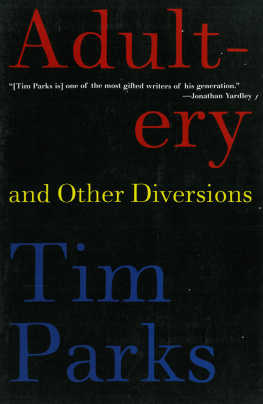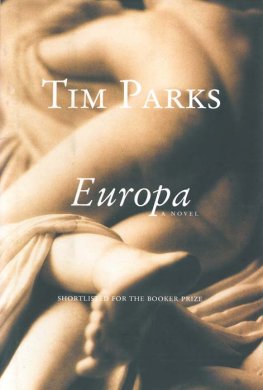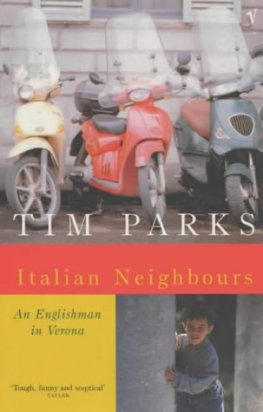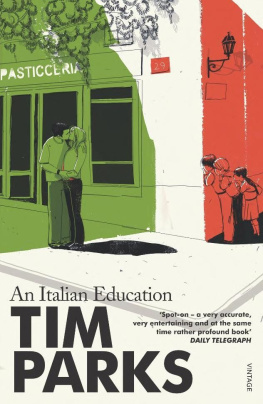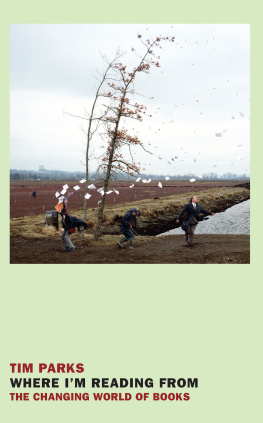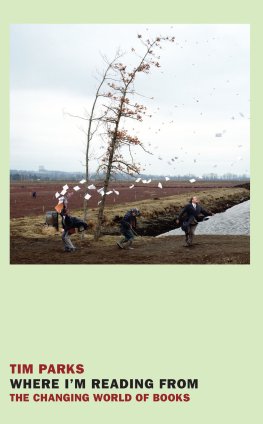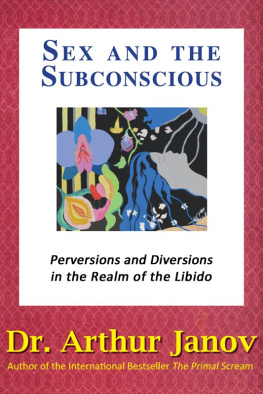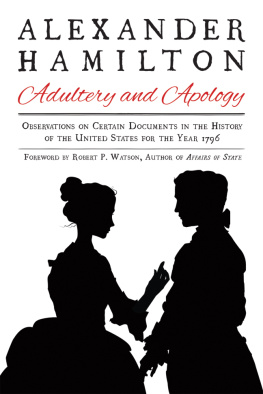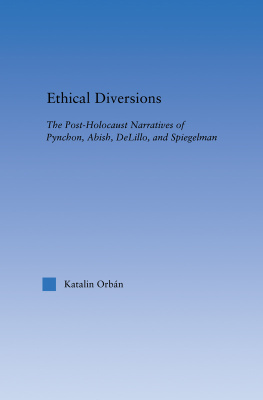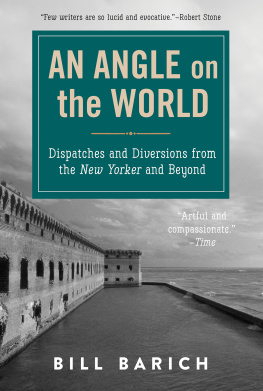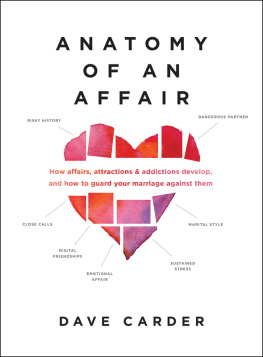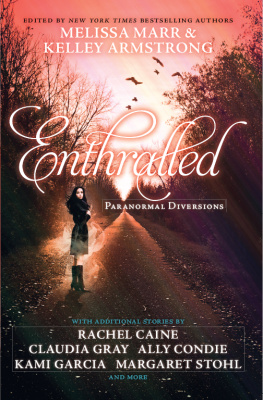Authors Note

In the course of some desultory reading over the last year or so, and that is since completing the pieces that make up this collection, I think I can safely say that I have come across every idea here expressed, and more often than not in the writings of two centuries, or even two millennia ago. So the reader can rest assured that he will not have to tackle anything new in these pages. But novelty is an ambition one long since learned to set aside. No, my hope when I began work on these odd hybrids was rather to dramatize an intimate relation between reflections that are timeless and the ongoing stories of our lives. Schopenhauer was not alone in remarking that rather than developing concepts in response to direct experience, we are taught them abstractly in youth so that there is often little correspondence between our ideas, which have been fixed by mere words, and the real knowledge we have acquired through perception. For most of us many years must pass before those two areas of consciousness can be anything more than casual acquaintances, our greatest illuminations often coming when finally we have the experience a love, a death, a moment with our children that fits the concept, or at last the concept is seen from the angle that matches our experience. It is then, with a sense of exhilaration and sometimes horror, that we come into full possession of what we now discover we only thought we knew. In their attempt to evade the distinction between narrative and essay, or to have the one form call constantly to the other, these pieces grope towards such illuminations.
Adultery

A couple of years ago I found myself listening to a lecture on the somewhat abstruse theme: Marriage Bedroom Tapestries in the Works of Shakespeare: Othello, The Winters Tale, Cymbeline. Its not the kind of thing I would generally move heaven and earth to get to, but I was stuck in a conference centre outside Milan, it was raining heavily, there was nothing else to do. As it turned out, I was spellbound. With extraordinary vivacity, the speaker, a fine-looking woman in her fifties, used slides and video clips to illustrate the profound ambiguities of a series of images woven onto the upholstered bedsteads of the Elizabethan aristocracy. Particularly fascinating was the collision of sacred and profane, the scenes of domestic bliss undermined by evident allusions to more disturbing emotions: serpents and harpies warning rapturous newly-weds of obscure calamities to come. Then the speaker began to explain how Shakespeare had drawn on this material in his plays, but what she really ended up giving us was a whole history of marriage, from its dynastic origins when the family was everything and sentiments relegated to extramarital adventures, to the crisis sparked off by the tradition of courtly love when husbands and wives began to leave their partners to follow their lovers, and finally the search for a solution in the novel idea that marriage be founded on love rather than family. This last adventure, the speaker claimed, was the subject of the three plays she had selected for consideration, this the underlying theme of the allegories featured in the bedroom tapestries: the huge gamble of placing love at the heart of marriage, the sad discovery, fearfully embodied in Othello that love is even more fragile than dynasty. All it took was an unexplained handkerchief, a jealous temperament, and, as Shakespeare so tunelessly put it, Farewell the tranquil mind, farewell content...
After the lecture, chatting to two elderly professors, I couldnt help but praise the marvellous dispatch of the womans delivery, the energy and passion and relevance of her analysis of marriage. A brilliant lecture, I insisted. No mystery about that, remarked one of the two. His smile was at once sad and wry. Her husband just left her for a twenty-two-year-old.
Love and dynasty, passion and family. It was around this time that Alistairs story got into full swing. I was his confidant. We played squash together twice a week, then over beers afterwards he told me all about it. We were best friends. As he spoke, he was full of laughter and his face burned with excitement. Youve blown your marriage, I warned him. He laughed out loud and used sports terminology. Playing away. Scoring in extra time. Next weeks game plan. The logistics can be so complicated, he chuckled. He even giggled. And you could see what an enormous sense of release he must have felt in this first affair after eight or nine years of marriage. Alistair was a very sober, a very solid, a very reliable man, but now the great dam of vows and virtue, the conventional vision of life he had grown up with, was crumbling beneath a tidal wave of Dionysiac excitement.
We worked together at the university and in the corridor I remember showing him a passage from a book I was translating, Calassos The Marriage of Cadmus and Harmony. Dionysus, it said, is not a useful god who helps weave or knot things together, but a god who loosens and unties. The weavers are his enemies. Yet there comes a moment when the weavers will abandon their looms to dash off after him into the mountains. Dionysus is the river we hear flowing by in the distance, an incessant booming from far away; then one day it rises and floods everything, as if the normal above-water state of things, the sober delimitation of our existence, were but a brief parenthesis overwhelmed in an instant.
Youre possessed, I told him. Alistair nodded and laughed. He had been a weaver for so long. He had woven together family-house-career-car. But the following evening, after squash again, he was describing how in that family car his girlfriend (though he always called her his mistress he liked that word) had pulled up her skirt they were on the autostrada between Bergamo and Brescia and started masturbating, then rubbed her scented hand across his face, pushed her fingers in his mouth. Since we live in Italy, and have both lived here a long time, he occasionally broke into Italian. Evviva le puttanelle! he laughed. Long live the little whores! He was in love with her. For those of us looking on, those of us still safely within wedlocks everyday limits, its hard not to feel a mixture of trepidation and envy on seeing a friend in this state. Clearly it is very exciting when you start destroying everything.
Alistair referred to his wife as The Queen of Unreason or She Who Must Be Obeyed. His wife was still a weaver. They had two young children. With the way feminism has changed everything and nothing, it was she who was in charge at home, she who felt primarily responsible for the children. Men of course now help in the home and, being a reasonable and generous man, Alistair helped a great deal. But he was not in charge. Her conscientiousness and maternal anxiety, heightened no doubt by her decision to stay at work despite the kids, must frequently have looked like bossiness to him. Their arguments were entirely trivial: whose turn it was to do this or that. He felt himself the butt of her imperatives, his behaviour constantiy under observation. Its difficult to make love in these circumstances. Or perhaps it was simply that with everything now achieved it was time for something else to happen. All of us have so much potential that will never be realized within the confines necessary to weave anything together. Job and marriage are our two greatest prisons. When he asked her what was wrong, how could he understand if she didnt tell, she said if only he spared her a moments attention he would understand without being told. Every intimacy is a potential hell. Alistair referred to sex with his wife as duty-fucking.

